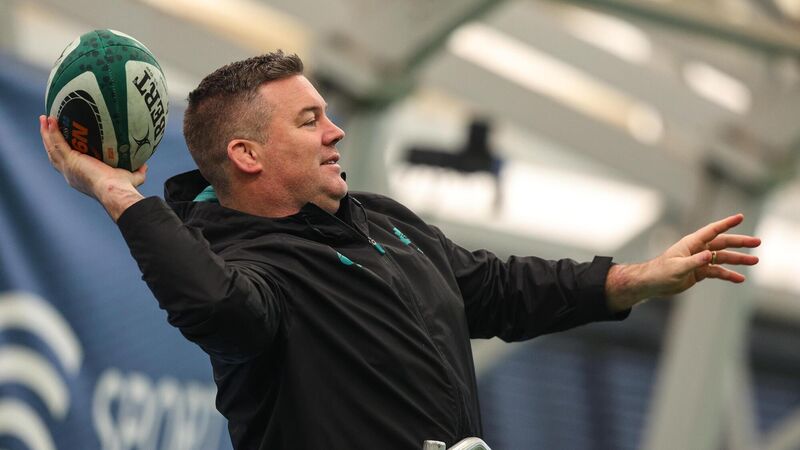Ireland assistant coach John Fogarty: Risks with 7-1 bench split would spook us

SPOOKY: National Scrum Coach John Fogarty during an Ireland training session. Pic: ©INPHO/Ben Brady
Ireland will not follow South Africa and France down the road to a 7-1 bench split between forwards and backs and the 20-minute red card law trial currently in place during this Guinness Six Nations campaign has confirmed their mistrust of the strategy.
Ireland face the French in Dublin this Saturday for what has long been seen as the pivotal fixture of the 2025 the championship. Simon Easterby’s side may be the only team left capable of winning the Grand Slam but France and England will have a chance to end their bid for a historic Six Nations three titles in a row on the final day if they lose at Aviva Stadium this weekend.













